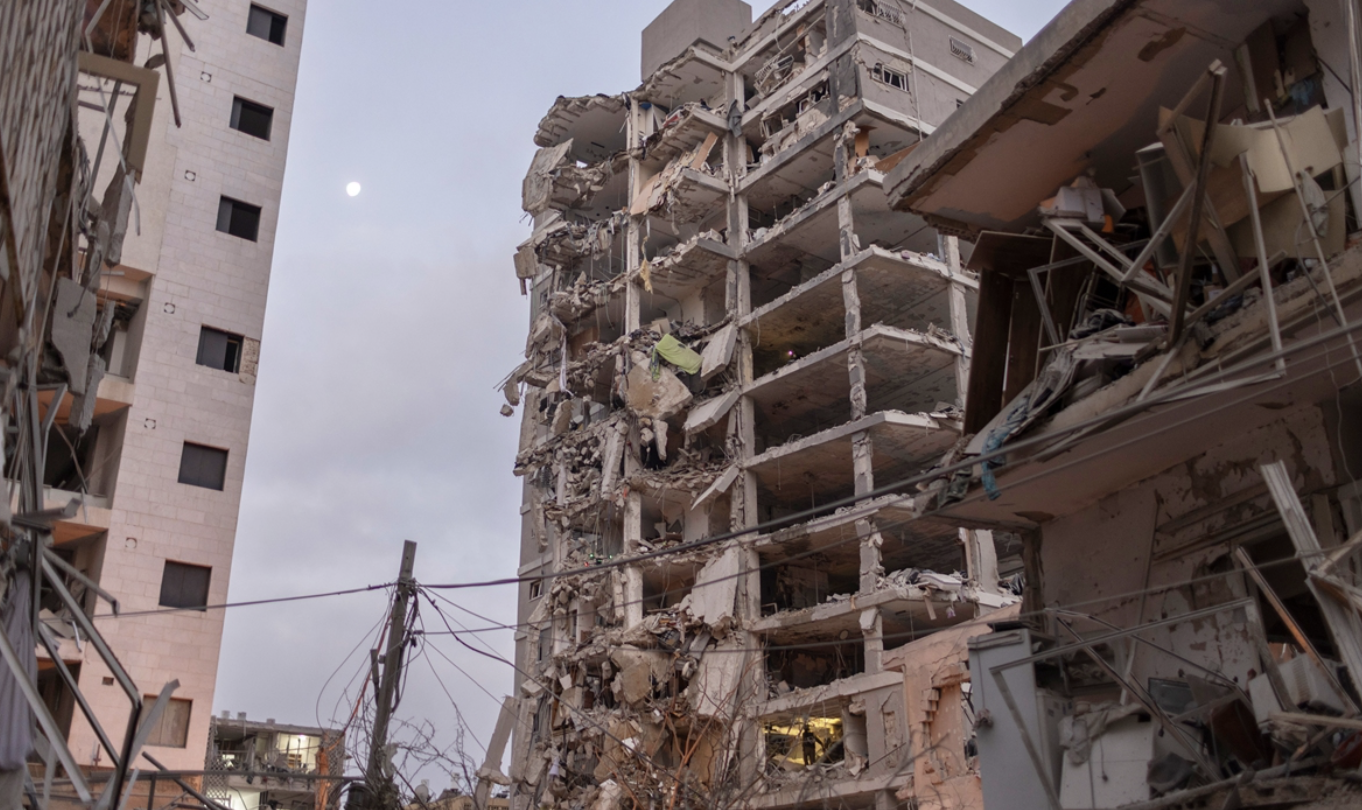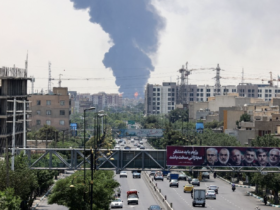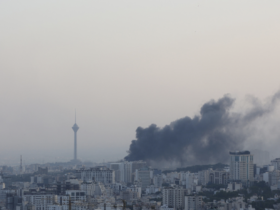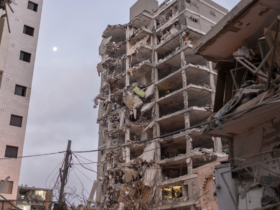BEIJING, June 18 – Israel and Iran continued to trade deadly attacks for a fifth consecutive day, with no signs of de-escalation, according to multiple media outlets, the Global Times reported.
The Chinese Ministry of Foreign Affairs said on Tuesday that some Chinese citizens in the two countries have already been safely relocated to neighboring countries and the ministry, along with relevant embassies, consulates, and some departments, is making every effort to protect Chinese citizens in Iran and Israel and is working swiftly to organize their evacuation.
Guo Jiakun, the spokesperson from the Chinese Foreign Ministry, said at a regular press conference on Tuesday that as soon as conflict broke out between Israel and Iran, the Chinese Foreign Ministry and the embassies and consulates in Iran and Israel activated the consular emergency response mechanism.
They have asked both countries to effectively protect the safety and security of Chinese nationals and institutions, issued timely alerts and safety advisories, and stayed in close touch with local Chinese and institutions to provide instructions for safety precautions and emergency shelter, said Guo.
Guo also said that Israel’s attacks on Iran have led to the spike of conflict in the region. It has become the world’s focus of attention.
The most urgent priority is to bring about a ceasefire, take effective measures to avoid further escalation and prevent the region from spiraling into greater turmoil, and return to the track of seeking political settlement through dialogue and negotiation. This is the prevailing consensus of the international community, Guo remarked.
On Tuesday, the Chinese Embassy in Iran released a notice saying that it has coordinated with Iranian authorities to provide exit facilitation, advising Chinese nationals in Iran to depart via land border crossings as soon as possible and designating the Razi, Nordooz, Astara, and Bajgiran border crossings as priority routes.
The embassy also said that the Iran-Israel conflict is escalating in scale and intensity, with the security situation continuing to deteriorate and the rising risk of the situation spiraling out of control, noting that Iranian airspace is still being closed while also warning of a potential closure of Iran’s land border crossings in the near future.
The Chinese Embassy in Israel on Tuesday also in a notice advised Chinese nationals to leave the country as soon as possible via land border crossings while ensuring their personal safety, with Jordan recommended as the preferred route.
In recent days, many Chinese nationals in Israel have contacted the embassy by phone or via email to ask when the airport will reopen and when Hainan Airlines flights will resume, according to the notice.
According to the latest information obtained by the embassy, Israeli airspace remains closed, and the government has extended the nationwide state of emergency until June 30. Meanwhile, the relevant Israeli government departments have confirmed that Israel’s border crossings with Jordan and Egypt remain open.
The Chinese embassies in Israel and Iran have not been reached by the Global Times for further details on the evacuation of Chinese citizens as of press time on Tuesday.
Journeys of evacuation
A Chinese citizen surnamed Zhao, who was on a business trip to Israel, told the Global Times on Tuesday that the situation escalated sharply on the June 14, prompting him to make an urgent decision to evacuate the following day.
“With help from local friends, we crossed into Jordan from Israel. The process was smooth overall. I left relatively early and made the decision quickly, so the journey went well,” Zhao said. “I was staying in Tel Aviv, and it took about one and a half to two hours to reach the northern border crossing. The clearance process took around 30 minutes to an hour.”
Zhao noted that there were few Chinese nationals along the route, with most people at the border being Israelis and Palestinians. “But after I shared my experience on Xiaohongshu (RedNote) on Monday, many Chinese people reached out to ask about the route out of Israel. Several of them have since made it out safely,” Zhao said.
He said he plans to travel overland from Jordan to Saudi Arabia and then fly back to China, as many flights from Jordan remain canceled. “Traveling by land to a neighboring country like Saudi Arabia is a more reliable option,” he said.
On Tuesday, Gao Tiankuo, a Chinese student studying in Tehran, Iran, was also on his way to evacuate from Iran to Azerbaijan. “We left Tehran around 9:30 this morning, and the journey has been smooth so far, with no traffic congestion. We expect to reach Qazvin shortly. It’s taken just over two hours – a relatively fast trip,” Gao said when reached by the Global Times on Tuesday afternoon.
“We made the decision to evacuate last night after both the Chinese embassy and the student association issued evacuation advisories, and as shops in Tehran began closing and Israeli strikes intensified that night,” said Gao.
Gao said he and his three classmates had considered several evacuation routes – including Armenia, Azerbaijan, Turkey, and Turkmenistan – comparing safety, cost, and return logistics before deciding Azerbaijan offered the best option. They also contacted the Chinese Consulate in Bandar Abbas for local updates. With the situation evolving rapidly, most coordination has been relying on community groups.
“Our immediate plan is to reach Azerbaijan, then assess transport options to return home,” said Gao, noting that “Looking ahead, I hope for peace – that Israel and Iran would reach a ceasefire agreement and life returns to normal. I came to Iran to finish my degree and am just one step away. Leaving due to war is deeply unsettling.”
No signs of de-escalation
The conflict entered its fifth day on Tuesday, with air raid sirens sounding in Tel Aviv shortly after midnight as Iran launched additional missiles toward Israel. Iran’s Foreign Minister Abbas Araqchi told four European counterparts that Iran was serious about diplomacy but its current focus was on confronting aggression, Iranian state media reported. Israel has said its goal is to eliminate Tehran’s ability to develop a nuclear weapon, according to Reuters.
The Group of Seven (G7) nations expressed support for Israel in a statement, opens new tab issued late on Monday and labeled its rival Iran as a source of instability in the Middle East, with the G7 leaders urging broader de-escalation of hostilities in the region.
In the statement, they also said that within this context “Israel has a right to defend itself,” according to a BBC report on Tuesday.
The BBC report also noted that US President Donald Trump left the summit in Canada early telling reporters: “I have to be back early for obvious reasons.” But in a post on Truth Social, he denied he left to work on a ceasefire but for something “much bigger.”
Also on Tuesday, Trump told reporters aboard Air Force One while returning from the G7 summit in Canada that “I’m not looking for a ceasefire. We’re looking at better than a ceasefire.” He said that his goal was “an end, a real end – not a ceasefire,” adding that he wanted a “complete give-up” by Iran, according to the AFP.
“The G7 statement seems to back Israel’s right to self-defense – but doesn’t Iran have that same right? With partial and tacit support from the West, Israel may take more actions with the situation escalating further,” Song Zhongping, a Chinese military affairs expert, told the Global Times.
Song said Israel’s current military actions have put Iran in a difficult position, but it’s too soon to talk about complete victory. Israel’s current progress relies heavily on American intelligence and support.
Israel’s military said on Tuesday it had killed Ali Shadmani, who it identified as Iran’s wartime chief of staff and said was the most senior military commander, according to Reuters.
Iran denied the claim that Shadmani had been killed in Israeli strikes, according to Saudi’s Arabic newspaper Asharq al-Awsat.
Views on the current conflict between Israel and Iran are divided in the US. Some advocate for the US to support Israel’s military strikes – or even join the fight. Others, aligned with the “America First” stance, oppose intervention and urge a focus solely on US interests, said Song.
These divisions are constraining the Trump administration’s decision-making. But if the hardliners gain the upper hand, military action against Iran becomes highly likely, said Song, noting that the US President is also pressuring Iran with a deal. “If Iran refuses, the likelihood of US intervention grows. If it agrees, the terms will significantly weaken its national security,” said the expert.
Also on Monday, Trump said in another post on Truth Social that Iran should have signed a nuclear deal with the US and urged everyone to immediately evacuate Tehran.
Song said the future of the conflict to some extent hinges on US’ actions. If Washington intervenes directly, a wider war could erupt, Song said.
Twenty-one Arab, Islamic and African countries on Monday issued a joint statement calling for an end to “Israeli hostilities” against Iran, a comprehensive ceasefire and the restoration of calm.
Chinese Foreign Ministry spokesperson Guo said on Tuesday China welcomes the joint statement on the Israel-Iran conflict issued by 21 Arab and Islamic countries and is ready to work with related parties to promote the easing of the situation.




















Leave a Reply